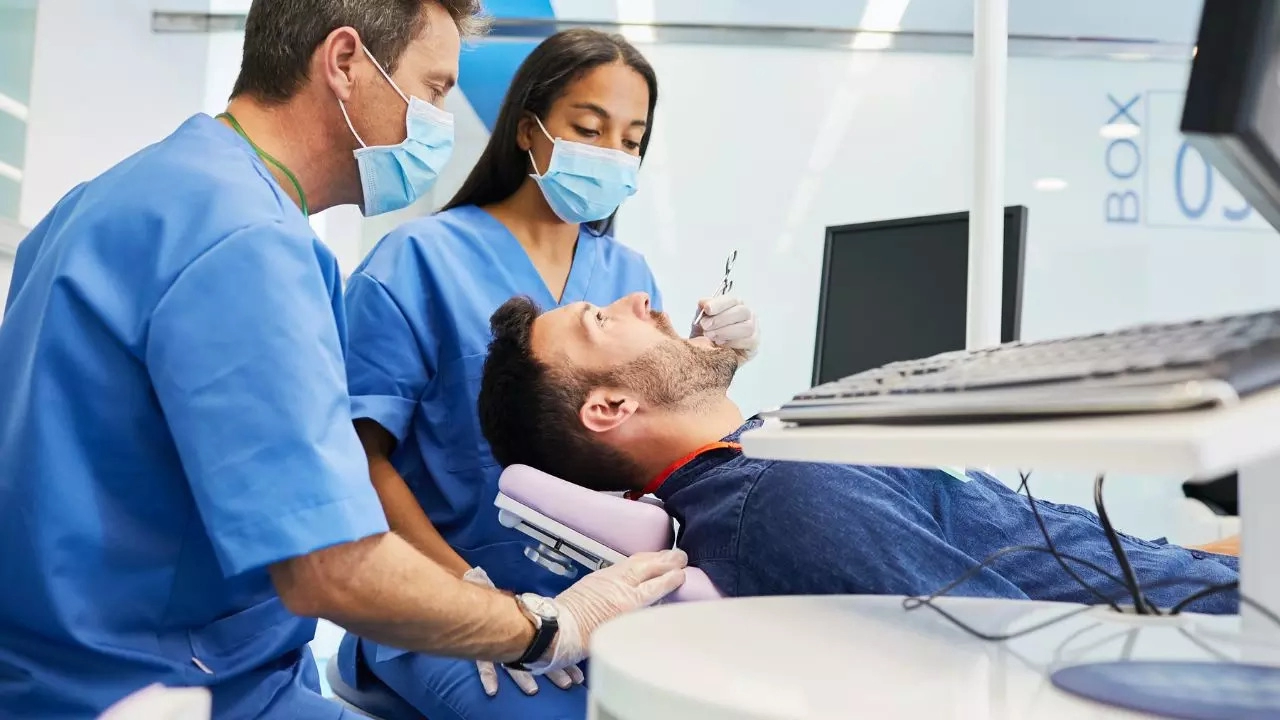Debosmita Ghosh • 12 Sep 2024
Man Dies After Major Dental Procedure In China; Know How Dental Treatments Can Trigger Cardiac Arrest

Know How Dental Treatments Can Trigger Cardiac Arrest
A man died after he had 23 teeth extracted and 12 implants during a single procedure. The man, identified as Huang, underwent the procedure at DeWay Dental Clinic on August 14 and died of a heart attack 13 days later, reported Jimu News. This has prompted an investigation by the Health Commission in Yongkang City, Zhejiang Province.
The content form of Huang showed that the dental surgery involved removing 23 teeth and immediately implanting 12 new ones, this method is known as “immediate restoration.”
According to a report in SHINE, Huang reportedly experienced severe tooth pain following the procedure. He died of sudden cardiac arrest after thirteen days.
In a September 3 interview, hospital employees told Jimu News that the number of teeth removed in one session depends on the patient’s health and is determined by the consulting doctor. A staff member said, “Front teeth can usually be extracted and implanted on the same day, but molars typically require a three-to-four-month waiting period between extraction and implantation.”
However, Huang’s consent form shows that several molars were extracted and implanted on the same day, which breaks the hospital’s usual procedure for tooth removals.
The Health Commission said, “Since there was a 13-day gap between the procedure and Huang's death, we are still investigating the cause.”
Know How Dental Treatments Can Trigger Cardiac Arrest
Stress and Anxiety
Dental procedures especially the extensive ones can cause severe stress and anxiety. This stress can lead to increased heart rate and blood pressure, thereby, triggering cardiac arrest, particularly in patients with underlying heart conditions.
Use of Anaesthetics
Local anaesthetics and sedatives used during dental treatments can affect heart rhythms. Certain anaesthetics may cause arrhythmias or heart palpitations, thereby, increasing the risk of cardiac arrest.
Pain Response
Intense pain during or after dental procedures can lead to an acute stress response which may increase heart rate and blood pressure. This response can impact the cardiovascular system, thereby, posing a risk of cardiac events, including arrest.
Infection and Inflammation
Dental procedures can sometimes introduce bacteria into the bloodstream, leading to infections such as endocarditis. This condition can cause inflammation in the heart valves, increasing the risk of cardiac complications.
Bleeding and Fluctuations in Blood Pressure
Blood loss during dental surgery can lead to sudden drops in blood pressure, causing reduced oxygen supply to the heart. This can potentially result in cardiac arrest, especially in people with preexisting cardiovascular issues.
Underlying Heart Conditions
Patients with preexisting heart conditions, such as coronary artery disease or arrhythmias have a higher risk of cardiac events during dental procedures. The added strain from the procedure can aggravate these conditions.
Electrolyte Imbalances
Some dental procedures, especially those that involve extensive surgery or sedation can affect electrolyte balance in the body. Imbalances in potassium, calcium and magnesium can affect heart function, causing cardiac arrest.
Medicine Interactions
Medications used during or after dental treatments, such as painkillers, antibiotics or anti-inflammatory drugs can interact with existing heart medicines, thereby, causing dangerous side effects that could cause cardiac arrest.
Get Latest News Live on Times Now along with Breaking News and Top Headlines from Health and around the world.